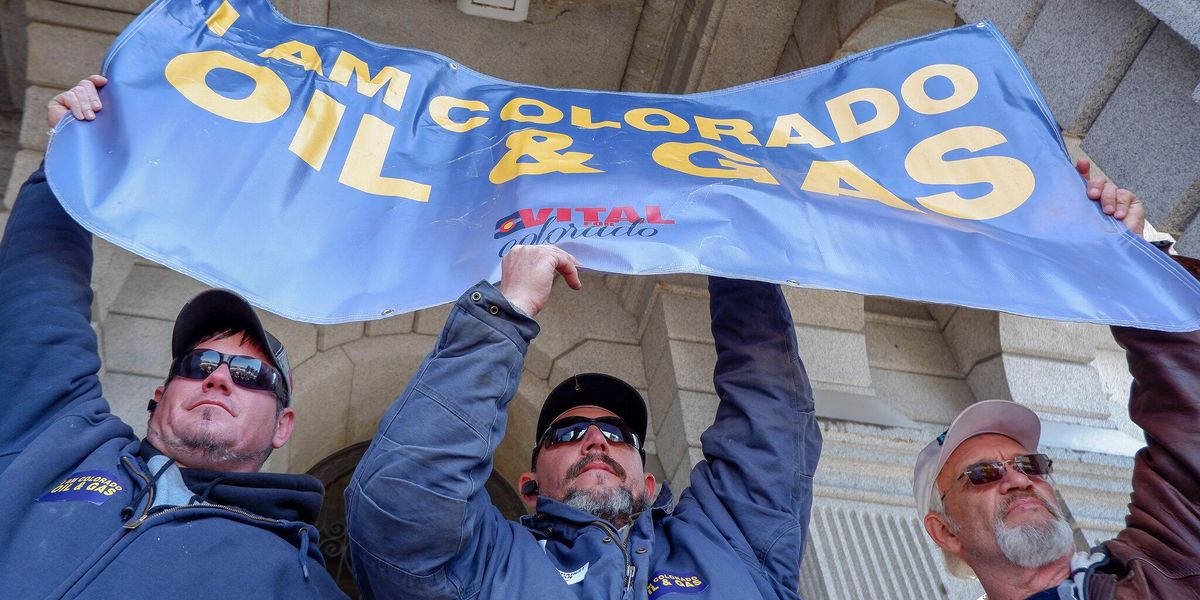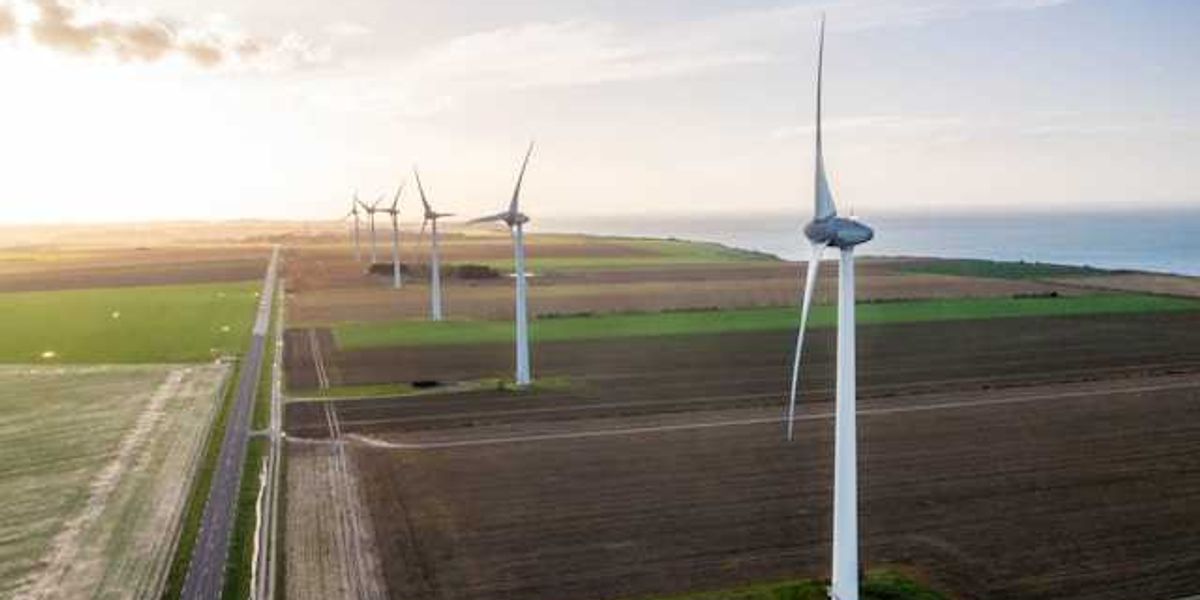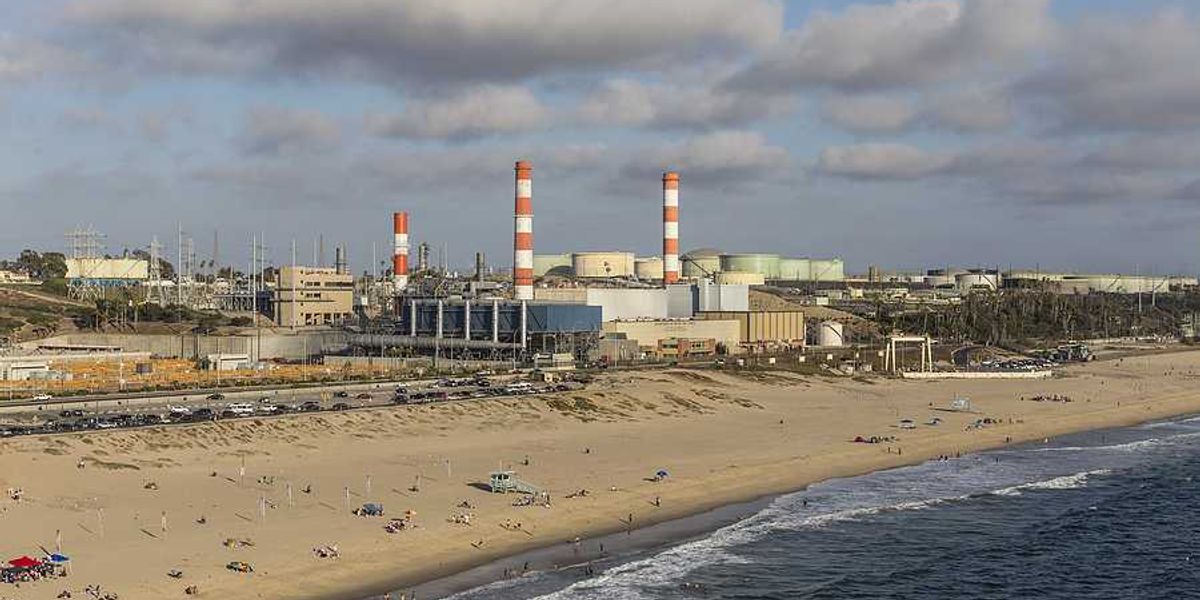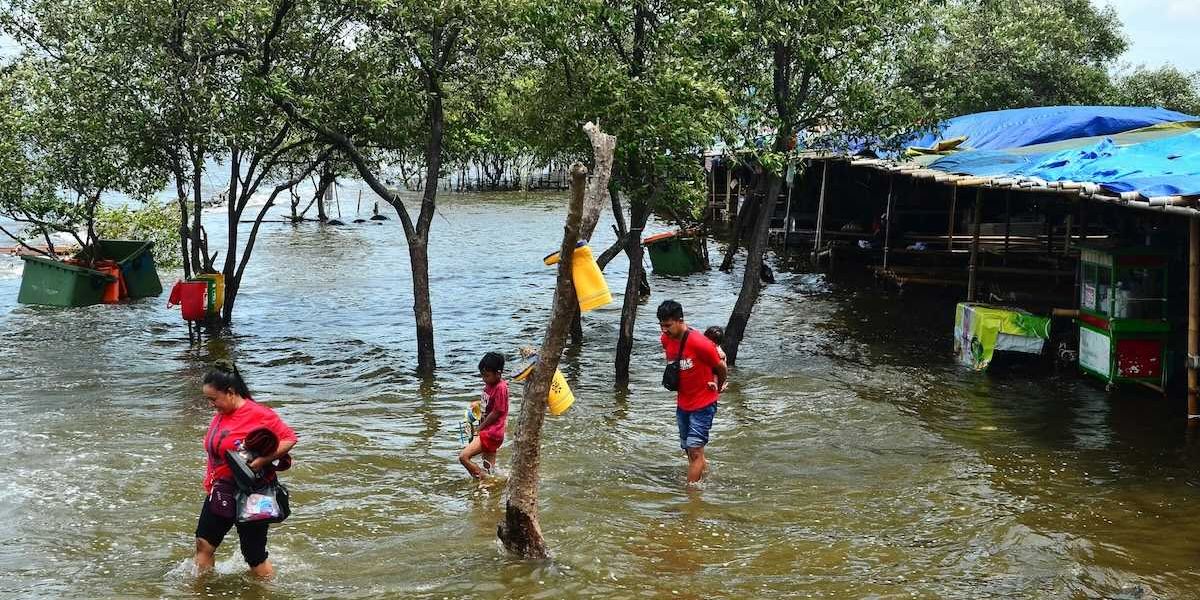
Colorado is the first state to ban PFAS in oil and gas extraction
The toxic “forever chemicals” are used in fracking wells across the country.
This month Colorado became the first state to ban the use of PFAS in the extraction of oil and gas.
While there has been widespread outcry about PFAS (per- and polyfluoroalkyl substances) in consumer goods — such as stain- and water-resistant clothing, nonstick pots and pans, firefighting foam, carpets and furniture — the oil and gas industry could be a major and under-appreciated source of soil and groundwater contamination.
Last summer an investigation by the advocacy group Physicians for Social Responsibility revealed that the chemicals are often used in the fluids used to extract oil and gas from deep in the ground during fracking. The chemicals, which are extremely water-repellent, are used in fracking fluid to make the chemical mixture more stable and more efficiently flush oil and gas out of the ground at high pressure.
The chemicals have been detected in drinking water across the country, and in a broad range of food items including cow’s milk from small dairy farms, leafy greens and chocolate cake purchased from grocery stores. Plants grown in soil containing PFAS can uptake the chemicals into their plants and roots and make their way into human and animal bodies. PFAS don't break down naturally and are linked to illnesses including cancer, thyroid disease, obesity and ulcerative colitis.
Colorado’s new law passed with bipartisan support, and bars the use of PFAS in fracking fluid starting Jan. 1, 2024.
It also restricts the sale of PFAS in consumer products like carpets and furniture, fabric treatments, cosmetics, food packaging and children’s products, and mandates that the state purchase PFAS-free products.
“This law puts Colorado at the forefront of states taking action to stop the flow of toxic PFAS chemicals,” said Sarah Doll, National Director of Safer States, in a statement. “We anticipate other states to continue this trend.”
PFAS in fracking fluid
Despite widespread use in consumer goods and on military bases, PFAS in fracking has largely flown under the radar.
The report from Physicians for Social Responsibility uncovered PFAS in more than 1,200 fracking wells in Arkansas, Louisiana, Oklahoma, New Mexico, Texas and Wyoming between 2012 and 2020. The U.S. EPA approved the chemicals for use in fracking in 2011 despite concerns about their toxicity.
It’s likely the chemicals were also used in fracking wells in other states, but in some, like Pennsylvania, oil and gas companies are permitted to keep the list of chemicals used during fracking confidential, preventing a full investigation.
“It’s very disturbing to see the extent to which critical information about these chemicals is shielded from public view,” said Barbara Gottlieb, Physicians for Social Responsibility’s Environment & Health Program Director, in a statement. “The lack of transparency about fracking chemicals puts human health at risk.”
A subsequent analysis by the Philadelphia Inquirer identified the use of PFAS in at least eight Pennsylvania fracking wells between 2012 and 2014.The Pennsylvania Department of Environmental Protection spent more than a year sampling water across the state to test for PFAS, focusing on locations where contamination was likely. The agency did not find widespread contamination, but did not include any sites near fracking wells in its investigation.
Representatives from the American Petroleum Institute and the Colorado Oil and Gas Institute responded to the report by Physicians for Social Responsibility last year, saying they agree that PFAS shouldn’t be intentionally used in fracking fluid and that they were not being used in Colorado wells. Even before the PFAS ban, Colorado had some of the most stringent fracking regulations in the country and has required public disclosure of the ingredients in fracking fluid since 2011.
Banner photo: The oil and gas industry holds a rally outside of the Colorado Capitol on Tuesday, March 5, 2019. (Credit: Jesse Paul/flickr)













